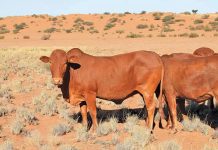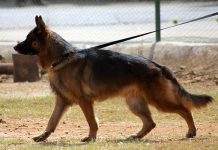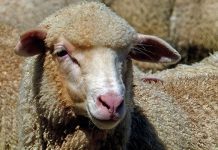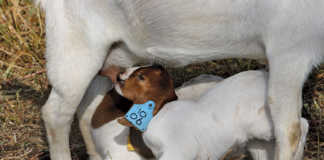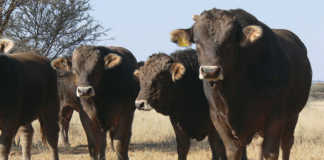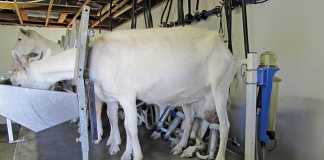Causes of diarrhoea (purging) include bacterial and viral infections, certain chemicals, intestinal parasites, poor diet, overfeeding on milk or lush grass, poisonous plants, food allergies and even stress.Diarrhoea itself occurs when the intestine cannot absorb fluids properly, and secretion into the intestine is increased.
The loss of fluids that results leads to dehydration and it is this, along with the loss of body salts, that kills the animal, rather than the bacterium causing the condition. Because of its danger, it’s important to determine the cause of diarrhoea if treatment is to be effective. This issue we’ll look at the possible causes of diarrhoea in adult cattle.
Johne’s disease
Also known as paratuberculosis, Johne’s disease is an incurable wasting disease more likely to occur in dairy herds than in beef operations. This is due to the different management practices, especially the close confinement of dairy operations, which make it easier for the bacterium to pass from one cow to the other.
The bacterium causes an infectious inflammation of the intestines, accompanied by weight loss and diarrhoea. Some animals may become so thin they are unfit for slaughter. Milk production is also reduced. Johne’s disease should be suspected when animals continue to eat well and look bright despite persistent diarrhoea that lasts for months and is not responding to treatment.
Other causes
Salmonellosis – ‘Food poisoning’.
Bovine virus diarrhoea – Reduces productivity and can cause abortions.
Winter dysentery – Affects several adult cattle in a herd simultaneously. Characterised by a dramatic decrease in milk production and loss of body condition.
Intestinal parasites – Rarely produce severe diarrhoea in adults, but it is possible.
Poisons – Poisonous plants or chemical poisonings, such as arsenic, usually cause sudden diarrhoea.
Treatment
- A vet or animal health technician should be consulted, especially when diarrhoea is severe.
- Always administer clean water or barley water at intervals of two to three hours to compensate for the loss of body fluids.
- Dosing activated charcoal with water may be of benefit in cases of poisoning.
- Limewater, tannic acid or commercial diarrhoea remedies can be used if the animal is in danger of dehydrating.
- Sulphas and antibiotics should only be used on the recommendation of your vet or animal health technician.
Next week, we’ll look at diarrhoea in calves, where the condition can be much more dangerous.
Source: Diarrhoea in cattle, by D Luseba, Directorate Agricultural Information Services, department of agriculture, in co-operation with ARC-Institute for Tropical and Subtropical Crops.




